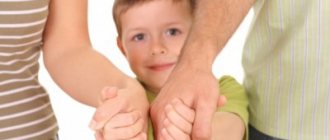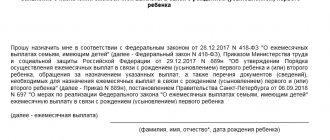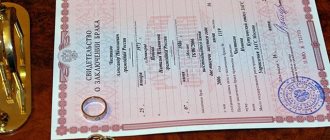⭐ ⭐ ⭐ ⭐ ⭐ Good day, dear blog readers, right now we will be covering perhaps the most necessary and interesting topic for you - the Pros of Adopting a Child. After reading, you may still have questions, so it’s best to ask them in the comments below.
We always and constantly update published information, so you can be sure that you will read all the latest information.
While the risks associated with adopting a teenager are obvious, little is known about the benefits of such a choice. Today I am convinced that an orphan teenager is sometimes a much better choice for those who dream of becoming a foster parent. My beloved adopted son will be graduating soon and turning 18 this summer. Legally speaking, my custody of him will end. However, over the years we have become a real family, and it is an amazing experience that I want to share.
Inna, 47 years old, housewife
When a person has the opportunity to make someone happy, he himself becomes happy. Look at the children left without parents. They often live in monstrous conditions, they never had their own toys, they never felt the love and care of adults. And if you have the opportunity to help such a child, do not refuse it. Just don’t see your adopted baby as some kind of “investment.” You don’t need to think that you are taking a child into your family so that he will subsequently provide you with a decent old age. Children are not a savings account. You cannot demand from an adopted child that he be grateful to you all his life for taking him. He didn't ask you for this. You did this solely for yourself. To feel happy that we were able to help at least one of the many unfortunate children. And if you approach adoption with this in mind, you will definitely succeed!
Applying for adoption
Any person who has reached the age of majority can act as an adoptive parent. For single applicants, the difference with the child must exceed 16 years. A serious reason may lower this threshold.
To start the procedure, citizens need to come to the relevant government agency. There you also need to write an application asking for permission to take the child.
Next you should prepare some documents:
- a short biographical essay;
- salary document;
- any document about place of residence;
- document on good conduct;
- medical certificate;
- a copy of the marriage document.
To create a conclusion about the likelihood of issuing the right to adopt a child, the relevant structure is obliged to check all the data. If a positive result is detected, applicants are registered.
The legislation of the Russian Federation clearly regulates all processes related to adoption. The provisions on this procedure are in the RF IC. They are described in detail in Chapter 19 of this document.
Important! A sample application to the court for the adoption of a child is freely available on government services.
Olga, 40 years old, lawyer
It seems to me that the “call of blood” is very important. You love your own child initially and unconditionally. Just because he exists. But it’s not a fact that you will treat your adopted baby in exactly the same way. What if you never manage to love him? Then you are doomed to live with an eternal feeling of guilt. You adopted a child from a shelter, but you cannot treat him with sufficient warmth. And the adopted baby will be unhappy. Children are very sensitive to the attitude of adults towards themselves. And don’t think that he won’t know that he has begun to irritate you and interfere with your life. There is no way you can hide your feelings. Every prank that you would normally accept from your own child, in the case of an adopted child, will turn into a huge offense. And even against your will, you will “save up” these pranks in order to remember them to your baby on occasion. Again, subconsciously, you will certainly expect gratitude from the child for taking him into the family. But, alas, you will never get this. The adopted child will also not treat you like his own mother. After all, all his life he will feel that he is not loved enough. And you will never part with the feeling of disappointment because of the unjustified hopes that you had for this child.
Minuses
- Not all children in boarding schools have a social status suitable for adoption . Biological parents may retain their rights, but adoption requires either orphan status or deprivation of the parental rights of the natural father and mother.
- The adoption is formalized in court, the process can take from 1 to 3 or more months . It all depends on the timing of the paperwork. Sometimes the process is delayed due to the absence of officials and doctors (vacation, sick leave).
- After adoption, children are deprived of social support from the state , such as the right to housing upon reaching 18 years of age. However, adoptive parents receive a one-time allowance or payments upon the birth of a child and one-time assistance if the baby is under 3 months old.
- If the decision on adoption is canceled in court, adoptive parents are required to pay alimony for up to 18 years of age . This often happens when a couple divorces and decides to provide shelter for minors. It happens that parents change their minds and decide that they are not ready for the educational process, but they help the child financially in the future.
- Fear of genetic predisposition and disease . People often think that children from orphanages can inherit negative characteristics and a predisposition to bad habits from their genetic parents. All this depends on the upbringing and personal example of the adoptive parents. If a favorable atmosphere is created in the family, children are accustomed to sports, healthy eating, and see a worthy example of adult behavior, then there should be no problems. It is important not to program children for bad qualities and to expect the best from them, to believe in them.
Irina, 36 years old, accountant
Every woman at some point in time awakens her maternal instinct. And if she does not have the opportunity to give birth to a child, this instinct still needs to be given some kind of outlet. Otherwise, the woman will remain unhappy for the rest of her life. After all, this is her purpose - to raise children. And think about what awaits a childless woman? Most likely - lonely old age. And by adopting a child, you gain a loved one who will take care of you when you can no longer do it on your own. In addition, the child will fill the inner emptiness that inevitably forms if a person cannot find a way out for his love. It is not without reason that it is said that man lives by worries. And who should a woman take care of if she doesn’t have a baby? About your husband? But he is already an independent adult who can manage just fine without this help. And a child, even if not your own, will become for you something worth living for. After all, a helpless baby will be lost without your love and affection. And as soon as he appears in your life, it will immediately take on meaning. You will have something to earn money for, and there will be an incentive even for such simple things as renovating your apartment and banal cooking dinner. I will tell you from my own experience. When my husband went on vacation for a week with the children, I never cooked a hot meal for myself during those seven days. What for? I don’t want to cook for myself, I’ll make do with a sandwich. And it seems to me that if a woman does not have children, she will definitely give up on herself sooner or later. And to avoid this and not fall into depression, you need to become a mother. Even if it's the reception room.
Pros and cons of this form
Guardianship has the following advantages:
- the decision is made by the leadership of local authorities, because of this the registration process is faster than with adoption;
- lower requirements regarding housing and wages are put forward to the guardian than to the adoptive parents;
- for a child under guardianship, the state pays benefits, helps with rest, placement for education and treatment;
- After the child reaches 18 years of age, if he does not have housing, the state provides living space.
The disadvantages of guardianship are:
- the person being brought up does not feel like a full member of the family;
- the child’s relatives can see him and sometimes take him back;
- Third parties have the right to adopt a child;
- You cannot change personal data – date of birth and full name.
Adoption has the following advantages:
- the child feels like a member of the family;
- after he reaches 18 years of age, all rights and inheritance relations are preserved;
- The adopted person can change personal data – place and date of birth, full name;
- The law protects the secrecy of adoption.
Disadvantages of the device form:
- a court decision is required, i.e. the registration process takes longer than guardianship;
- all responsibilities for providing for the child lie only with the newly acquired parents;
- quite high requirements for housing and salaries of adoptive parents;
- Not all children left without parental care can be adopted.
Dmitry, 50 years old, surveyor
Sooner or later, all adopted children make attempts to find their real parents. For some, it’s simple human interest. Others have a desire to prove to themselves that you ended up in a shelter not because your parents were drunks and they simply didn’t need you, but due to some incredible circumstances. After all, all the orphanage children invent magical stories about heroic parents who had to leave their children for a short time and accidentally lose them for life. Not a single child wants to admit that their parents simply got rid of them like unnecessary trash. This complex stays with abandoned children for life. And imagine how you will feel when the child with whom you have lived your whole life, to whom you have given everything dear to you, one day leaves you and begins to look for his real mother. I think it is very difficult to forgive such an offense. You will say that it is possible to hide the secret of his origin from a child. But in our country the secrecy of adoption is observed very poorly. And sooner or later the deception will be revealed thanks to “well-wishers” from among neighbors, teachers, etc. The child is unlikely to forgive you for your secrecy.
Our experience and our mistakes
I have long wanted to write our story, especially because recently many questions have arisen about the return of children from foster families. Our story is about return and... return. Maybe it will help someone who is at a crossroads to make the right decision and avoid the mistakes we made. Sorry this will be long. I’ll break it into two parts – the story itself and conclusions from it.
We always wanted to have a second child, and specifically a son (our daughter is already 21 years old), but it didn’t work out. Although, back in college, a classmate told me that there would be two children: a big girl and a little boy (over the past years, everything else from her fortune-telling has come true). The decision to take a child from the child care center was mutual, thoughtful and balanced between me and my husband; my daughter supported us. The motivation (besides the husband’s desire to have a son - the heir to the family name) was this: the daughter has grown up, is getting married, she already has her own adult life, and we still feel young, a lot of strength, knowledge, etc., there are all the possibilities ( including material) to raise another child and give him love, care, and education. In general, this is a reasonable motivation. By the fall of 2008, our decision was finalized, the documents were quickly collected, we received a conclusion and began to search.
We went to one DR in Moscow, where they offered us the dream of all adoptive parents - a 3.5-year-old blue-eyed blond boy, and they immediately began to hint at some conditions, etc. (to extort money, in short), although we did not come from the street. Somehow it was stressful. Moreover, we wanted a dark boy, even a national one (my husband is Armenian). We started watching FBD, etc. And then I came across this site, read PR texts about children (from St. Petersburg volunteers) and saw... almost a copy of my husband as a child. We called the guardian, at first they tried to politely kick us off (well, they don’t like Muscovites in St. Petersburg and the surrounding area), then they still offered to come, meet us and, maybe, take us as guests.
And just before the New Year, we drove 800 km along snow-covered roads to our first meeting. They were terribly afraid, both of them were simply shaking. What they heard in the guardianship and in the child care center was not very encouraging (in terms of the biomother and diagnoses), and it also turned out that the child had no status for adoption, but still we decided that since we had come so far away, let’s get to know each other. Danya was in the sanatorium, we went after him with a nurse, they brought out a little man in shabby overalls, with a backpack, he looked about 3 and a half years old (and according to the documents he was only 5), withdrawn, wary; You won't understand half of what he says. Then in the kindergarten we talked in the presence of the teacher, the boy thawed out a little, gladly accepted the gift (a remote control car), and agreed to the offer to take a walk with us after a quiet hour. They got out, got into the car in some kind of stupor, and then said in unison: ours, we’ll take it anyway. In the evening we walked with him again, went for a ride in the car, bought gifts for the group and parted with the promise to come again. The guardianship immediately offered to take Danya for a visit, even for the winter holidays, but we only succeeded at the end of January. We lived in anticipation for a month. We bought a suitcase of clothes, toys, books, a car seat, prepared the room, went, deciding - we’ll take him on a visit, let them formalize guardianship there, then we’ll take the decree back, but we won’t take Danya back.
When we arrived, he immediately went into my husband’s arms and said that he had been waiting for him. I immediately started calling him dad. A little later, I became a mother, but this is not surprising (they called all the teachers mothers). And then in the evening at the hotel, after Danya had fallen asleep, having played enough with new toys, dressed in everything new and homemade, such horror came over him: God, what are we doing, we are changing everything in our such an established life; It will never be the same as before, because we are used to freedom, travel, meeting friends, etc. So what to do? Take me to the DD in the morning and leave? We won’t be able to anymore... Then everything seemed to calm down, we received documents in guardianship and a DD, and went Home. We thought the stork was flying after us...
And then a couple of days later at home it started: hysterics, swearing, throwing everything in sight on the floor, trying to fight, bite, etc., in full. We were shocked. This is despite the fact that the family accepted him well, he liked everything, he played with pleasure, mastered the computer, went for walks, but the slightest prohibition and any remark caused hysterics and attacks of aggression. Here, too, the doctors (and in the children’s home they didn’t do any medical examination for us before leaving the child, they only gave us a medical card) began to add fuel to the fire with their diagnoses and comments. Joy gradually gave way to despair, our nerves were fraying, we didn’t understand what and how to do in such a situation. For me, the most important thing, probably, during this period was not even the fear of these hysterics, but the fear that I would not be able to accept and love him, and living with this dislike would be torment for everyone. I wrote to the conference (“Return after an independent examination”). Surprisingly, it seemed to me that so many “slippers” and reproaches were thrown at me, which are not even thrown at those who write about returning after several years at home or “I don’t like it, it’s annoying.” It was so bad that I even deleted my registration for the conference; my husband tried to forbid me to go there at all. In addition, upon a detailed study of all the documents received in the DD and guardianship, we discovered a bunch of inconsistencies that seriously complicate the subsequent adoption (the child’s age is not even the same as in the certificate; but this is not about that here, when we go through the courts, I will share my experience).
In general, in complete confusion, in tears, they began to make a decision. Most of the family members were in favor of returning to the DD, while little time had passed (2 weeks). I said that I would agree with the decision of the majority, but I could not go back. Although Danya treated me (and still, perhaps, treats me) as a teacher, even any tactile contact with me (stroke, kiss, hug) was difficult for him (the first attempts to show tenderness towards me appeared 5 months later), but With dad, love is carrots, hugs and kisses. My grandmother went with her husband to support him. Dana was told that he was going on a train trip, they collected all his things, toys, etc. What happened after his departure? With me - natural hysteria, as if something had been torn off, I felt like a traitor... What my husband felt, especially when Danya recognized DD and did not want to get out of the car, cannot be described in words. Later I found out that my daughter, who seemed to support the idea of returning (because she was afraid for us), cried in her room at night for Dana. That's it, the stork has flown away...
The husband returned alone, no face, we sat down to talk about how to live further. We understand that it is impossible to erase these 2 weeks from our lives, that no matter how much time passes, we will think about him: how is he doing, what’s wrong with him? We decided, despite his departure, to continue clearing his documents, even if not for ourselves, for him, for others. The husband asks: what if we find out everything, clear the status, what should we do? I answer: as you decide, we will do so, just answer me what you think is more important - freedom, as we are sitting with you now, in peace and quiet, without problems, even if tomorrow you go to the mountains, or when Danya snuggled up to you on the sofa and whispers: “Dad”? He couldn’t answer... Because he cried... You need to know the character of my husband to appreciate these tears. And somehow it became easier. And things began to become clearer with the documents. They called the DD and they said: he’s sitting on his bag, not letting anyone near him, not getting his toys, waiting for dad. They asked to call me on the phone, the psychologist was against it at first (you won’t come back, etc.) - no, we said, we’ll come in a week. We talked to Danya, calmed her down... He shouts: “Dad, I’m waiting for you! Come soon!"
And dad went on a long journey again... To take Danya forever. It was March 4th. On this day, the Stork still found its way to our house. Sometimes they come back, storks...
Almost six months at home. A home child with different eyes. He grew by 2.5 cm, gained a little weight (by 2 kg). We went through the doctors in a new way (others, fortunately, not empty talkers), and ruled out a bunch of diagnoses that were on the chart. True, they wrote to us about hyperactivity, but who doesn’t have it now? Progress in development cannot be described. He loves to help everyone and is a hard worker. Neat, neat. He won’t take anything without asking, even candy, which is always in the public domain. He has been going to kindergarten for a month now (on the advice of a neurologist, for social adaptation, because Danya was afraid of children). He adapted quickly to the kindergarten, thanks to the teacher, who worked together with us, constantly telling him that they don’t stay in kindergarten overnight, but go home to their parents, etc.
In July we went to the sea, to Turkey, a lot of impressions and joy, both for us and for the child. Active, athletic, dad's ally in everything related to cars, football, other sports games and various men's hobbies. There are, of course, some difficulties, but we have learned to cope with it, there have been no hysterics and throwing for a long time, although it can show character. But Danya also learns to cope with her emotions, she will step aside, mutter under her breath, sulk a little, and then come with the words: “Mom, I did everything myself.” I think when he finally understands that he is at home forever, it will become even easier, while sometimes there is such fear, hence the attempts to assert himself. And so - a beloved son and grandson, his own, dear.
Being adults, with education and experience working with people (my husband and I are lawyers, attorneys), we decided that we were so smart, we knew everything, including how to raise children, we had already raised one (smart, an excellent student, talented and extraordinary, with character), and even my niece was actually raised, she was also brought into the public eye, grandmothers are experienced teachers, what else do we need? We know everything, we can do everything, we can handle everything. We read smart books, stories about adoption on the Internet, and that was it. But it turned out that we don’t know a lot, we can’t even imagine how to behave with such a child, how to properly deal with it - that very terrible ADAPTATION! Including your own. Mistake 1 – excessive arrogance.
In our care, no one told us about SPR, about the need for classes there, about visiting a psychologist. Yes, we ourselves are already such psychologists - we thought - in our work. But we work with adults, and here is a child with a difficult past... We were not ready for this, hence the shock and confusion. Mistake 2 – IT IS NECESSARY to either visit the SPD or consult an experienced psychologist. Or at least read more about the adaptation. And then the conference really helped us, which I continued to read and retell to my husband, we bought the books that were recommended there, it helped a lot. Reassurances that we love him, that he is ours, we are one family, we are friends, etc. helped a lot in coping with hysterics.
Mistake 3 - we inattentively read the documents provided by the guardianship and the DD, although it is clear that it is impossible to read everything carefully and calmly - the situation is not the same, our nerves are strained, and not everything is allowed to be seen everywhere. Therefore, already at home, upon detailed study, we discovered many inconsistencies and real mistakes made by the guardianship. Because of this, we cannot even receive legal payments intended for the child. Now we will have to correct this ourselves, first of all, to exclude information about the biological father from the birth record... It’s good that our Moscow court accepted this application, and did not kick it far away...
What else helped you cope with difficulties? Oddly enough, there was support from almost all friends, relatives and neighbors who approved our decision, accepted Danya and loved him. An amazing external resemblance to us, which made it possible to immediately feel our commonality. And the fact that the minutes and hours of happiness, joy, laughter that we get from communicating with our son are many times more than the minutes of dissatisfaction with his whims.
Andrey, 49 years old, engineer
I believe that a family cannot be complete without children. After all, a child is the cement that holds the relationship between a man and a woman together. But what if for some reason you cannot have your own children? I think in this case adoption is a great way out of the situation. And even if you are not the biological parents of this child, caring for him will still unite you in the same way as if the adopted child were your own. In the end, it doesn’t really matter who gave birth to the baby. You will still love him as if he were your own. After all, the more you take care of your child, the more tender feelings you will experience for him. This is the law of life. It's no secret that difficult children very often become the most beloved. And in the case of an adopted child, you will also experience great happiness, seeing how, thanks to your love and care, the baby gradually turns from a frightened, withdrawn creature into a laughing, cheerful little one. I think your adopted child's first smile and the first time they call you mommy and daddy are worth all the effort.
Reports for guardianship authorities
Foster parents and adoptive parents are subject to control by the guardianship and trusteeship authorities.
During adoption, control over the child's upbringing and living conditions is carried out by local guardianship and trusteeship authorities.
Based on the results of the examination, a report is drawn up by the child protection specialist who carried out the control.
It contains information about the upbringing, behavior, emotional state, self-care skills, health, education of the adopted child and his relationships in the family.
During guardianship, there are other reports, in addition to control by the authorized federal body. The guardian must annually submit to the guardianship authorities a report on the storage, management and use of the ward’s property, this must occur no later than the date on which the guardianship agreement was concluded. It must be accompanied by supporting documents such as receipts, checks and other payment documents. According to this report, amendments are made to the inventory of the ward's property.
Nikolay, 32 years old, system administrator
Before you adopt a child, consider what kind of children end up in orphanages. After all, these are the offspring of drug addicts, alcoholics and other marginal elements. Even if we assume that the parents of the abandoned child were decent people and simply died, it turns out that among the relatives of this child there was not a single person who would want to take care of the remaining baby. So what will grow from such heredity? Another alcoholic or drug addict? No matter what they say about the importance of upbringing and the environment in which a child lives, genes will still take their toll. No matter how much soul you put into your adopted baby, you still can’t go against nature. So think about it, do you need it? You'll spend your whole life trying to raise your adopted child into a normal person, but in your old age you'll still be left alone with a drunk. And the state of health of adopted children, to put it mildly, leaves much to be desired. They are initially sick. And they are very seriously ill. They were conceived and given birth while high or in a drunken stupor. So it’s not surprising that children are unhealthy. You will probably treat this child well at first. But over time you may come to hate it. There are too many problems you will have to solve. And you will subconsciously blame your adopted child for all these troubles.
Parental rights
Adoption provides the following parental rights:
If one of the parents dies, or their marriage is dissolved due to the incapacity of one of them, and the other remarries, and they also wish to adopt a child, then any close relatives on the side of the deceased or declared incompetent parent can go to court and file a statement to maintain the legal connection between them and the child;- from the moment the adoption act is concluded, personal and property responsibilities and rights between the relatives of the adopted person, including parents, cease;
- between the adopted person and the adoptive parent, as well as existing and future relatives, from the moment of adoption mutual personal property and non-property obligations and rights are established;
- adoption imposes on the adoptive parent the same obligations in relation to the adopted child that parents have in relation to natural children;
- The adopted person after adoption has the same duties and rights that a child has in relation to his natural parents.
Guardianship provides for the following parental rights:
- from the moment a guardian is appointed, parents lose responsibilities and rights towards the child, even if they are not deprived of parental rights. The guardian makes decisions in the child's life;
- the guardian cannot prevent the child from communicating with his parents and relatives, if they are not deprived of parental rights;
- The guardianship and trusteeship authority does not have the right to remove or release the guardian from his obligations on the basis that the guardian’s natural parents have “returned.”
The Mystery of Adoption
The main problem of many families who have adopted a child is the constant fear that the child may find out the truth about his birth. Many even fake pregnancy for others or move to a new place of residence. Thus, trying to protect the child from grief and himself from gossip.
Adoption is the adoption of a child from an orphanage or orphanage into a family on the basis of blood rights (both in the legal aspect and in the juridical aspect). In this case, the highest degree of responsibility is imposed on the parents not only for his health, but also for his fate. He becomes dear to all family members and has the right of inheritance.









